On episode 26 of Granite Goodness, Nancy explains to Andy that the format of many modern public meetings is basically a leftover from colonial times, when the only voices allowed were land-owning dudes in wigs. Time for an upgrade! The two also discuss:
Civic Engagement Advocacy: Nancy emphasizes the power of civic engagement and the importance of everyone contributing to shape their communities.
Path to Public Service: Nancy’s background in education and arts led her to local government in Portsmouth, where she connected civic work with cultural and economic development.
Historical Research: Nancy’s PhD research uncovered that many public meeting practices stem from exclusionary colonial systems, underscoring the need for modern reform.
Civic Empowerment Pyramid: Nancy created this tool to illustrate how different types of civic actions impact decision-makers, encouraging deeper involvement beyond social media.
Making Civics Accessible: Nancy promotes “radical curiosity” about local issues and leaders, inspiring people to start small by getting informed and engaging directly with their community.
and more!
Dr. Nancy Pearson is a Civic Engagement Specialist and Educational Author.
Links & Notes:
Nancy Pearson’s Tedx Portsmouth Talk
Instagram:
Linkedin:
AI Generated Episode Summary*
Why do you emphasize civic engagement?
I believe we live in the most educated society ever, with countless resources available to make positive changes. However, it requires everyone’s participation to build the world we want, so I'm focused on making civic engagement both accessible and appealing.
How did you start working in public service?
My journey began in education and the arts, but moving to Portsmouth connected me with the community in new ways. Over time, I became involved with the city’s arts commission, which helped me understand how local government could support community culture and development.
What drew you to local government?
Living near City Hall, I noticed the impact of civic decisions on our daily lives. Running for city council allowed me to advocate for arts and culture in Portsmouth, linking it to issues like economic development and affordable housing. Through this experience, I realized the power local government has to shape our community.
Why do you think people don’t participate in local government?
Many people believe their voices don’t matter or feel disconnected from decision-making processes. Traditional public meetings can seem intimidating or inaccessible, and I experienced this firsthand as a city councilor. Engaging people where they are—physically and digitally—is crucial for creating an inclusive civic environment.
What inspired you to pursue a PhD in public engagement?
After my time on the council, I wanted to understand why public meetings and hearings were structured the way they were. My research revealed that these practices originated from exclusionary systems in colonial times. It became clear that we need to reimagine civic engagement to better reflect today’s diverse communities.
How do public meetings limit real engagement?
Public meetings often serve as formality, with decisions mostly settled beforehand. This “lip service” approach doesn’t foster genuine public input. By the time the public can comment, decision-makers have usually gathered information through closed-door meetings, making community voices seem secondary.
What changes did COVID-19 bring to civic engagement?
The pandemic disrupted traditional public meetings, leading cities to adopt online tools like Zoom. This shift allowed a broader, more diverse group of residents to participate. My research found that many cities kept these digital elements post-pandemic, realizing they increased accessibility and inclusivity.
How do you suggest people get involved if they’re busy?
If direct participation is challenging, support someone who can represent your interests. Alternatively, advocate for digital engagement tools that allow people to contribute on their own time. Some cities now keep meetings open online for two weeks to gather feedback, making it easier for people to stay involved without attending in person.
What is the “civic empowerment pyramid” you developed?
The pyramid shows the impact levels of various civic actions. At the bottom is social media engagement, which has minimal influence on decision-makers. Moving up the pyramid involves more direct involvement, like attending meetings and connecting with decision-makers personally, ultimately leading to real community impact.
What advice do you have for fostering civic engagement?
Develop “radical curiosity” about your community. Know your local representatives, understand local issues, and see how policies affect your daily life. Small actions, like learning who your city manager is, can empower you and build connections that drive meaningful changes in your own backyard.
*This episode summary was generated by an AI analyzing a transcript of the interview. The questions, wording, and written meaning of particular sections may contain slight differences to the original conversation. We include these summaries to give listeners a brief, readable synopsis of the episode. The full episode transcript is available on granitegoodness.com.


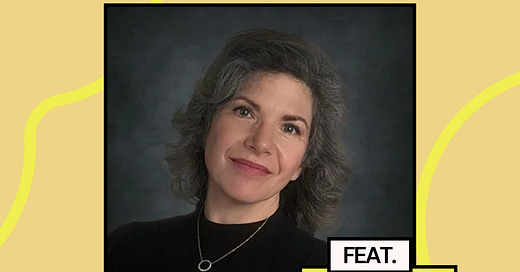




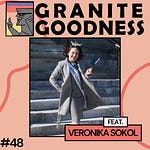
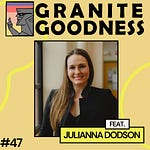
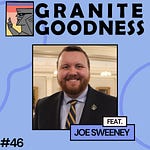
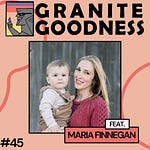
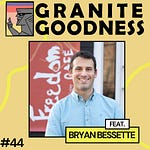
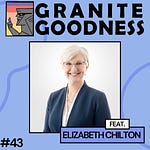
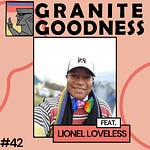
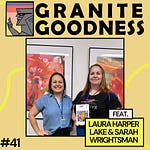
Share this post